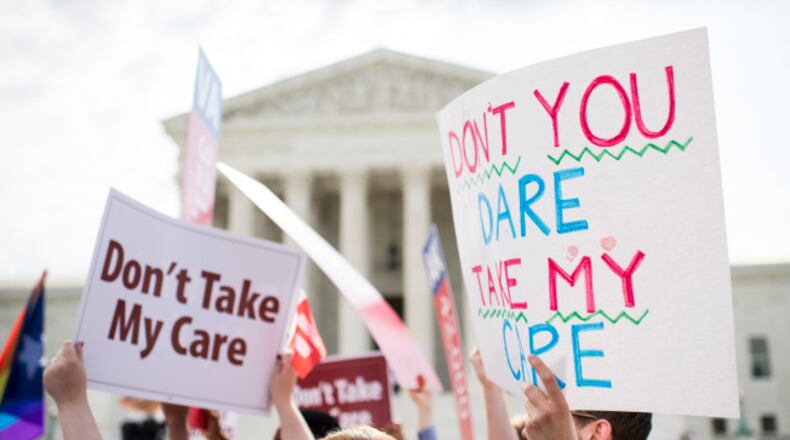The Founding Fathers made no mention of a right to health care in the U.S. Constitution, nor did they add it to the Bill of Rights. Those first 10 amendments guaranteed us many important things -- the right to free speech and the right to worship the god of our choice, among others -- but not a right to health care.
Subsequent generations of Americans have added to and extended those constitutional rights, for example by abolishing slavery, extending the vote to women and guaranteeing that the right to vote could not be denied on the basis of race or national origin.
But even now, there's not a single mention of a right to health care.
Yet even if it is not written on parchment somewhere, such a right clearly exists. As the GOP debacle over Obamacare demonstrates, the right to health care exists now as a political reality and as a moral consensus. It exists because the American people have finally decided that it exists. And from now on, any health-care proposal that doesn't acknowledge that reality is doomed to fail.
Sure, there's still controversy. A lot of people on the right still try to deny that such a right exists, often by citing the constitutional argument laid out above. To them, I ask a simple question: Do you believe that Americans should be denied life-saving, pain-ending, injury-healing medical treatment because they can't afford to pay for it?
If you answer yes, that health care is something that can be offered or withheld based on a person's ability to pay for it, then you honestly believe that health care is not a right.
However, if your answer is no, Americans should not be denied medical treatment because they can't afford it, then you do believe that health care is a right. From that point, the only remaining questions are how best to provide that treatment and how to pay for it. And while you can argue as a matter of philosophy and preference that the free-market system ought to provide health care to all, as a matter of reality the free-market system leaves tens of millions of working Americans without it.
If you still doubt that health care is a right, look at the debate over Obamacare. Don't look merely at the outcome, look at how the debate was conducted.
When Donald Trump campaigned on a promise to repeal and replace Obamacare, he did so by promising that he had a plan that would provide even better care to even more people at even lower costs with even lower deductibles. Tom Price, the conservative Georgia congressman turned secretary of Health and Human Services, condemned Obamacare as a failure by citing the millions of Americans whom it left without coverage, suggesting that his plan would correct that problem.
Ask Price whether a right to health care exists and he won't answer. Ask Trump and he might say yes, but in truth he neither knows nor cares. However, the arguments that they deployed took it as a given that a right to health care exists. With their own words, they acknowledged and even reinforced the notion that a plan that extends coverage to millions of Americans is much better than a plan that strips coverage from millions of Americans.
And once Trump, Price and others finally had to unveil their plans, once it became clear that their pro-coverage rhetoric had been a cynical disguise for policies that stripped insurance from 20 or 30 million Americans and that did not treat health care as a right, the American public rose up to reject their approach.
That's what happened this week in Washington.
About the Author
The Latest
Featured



